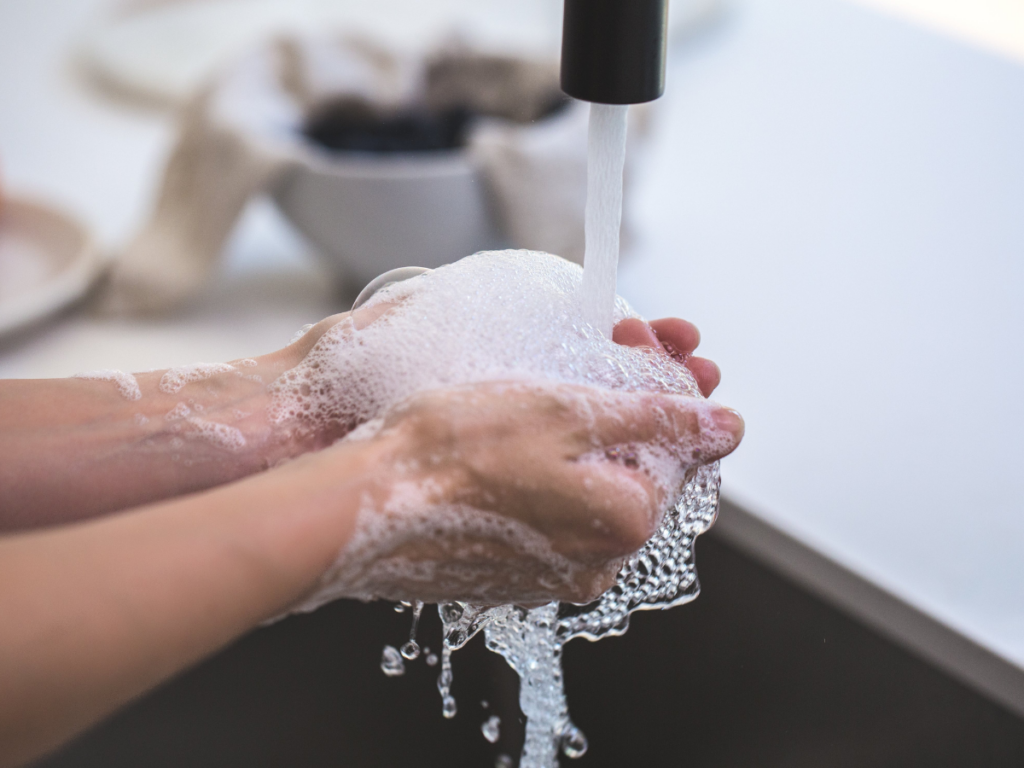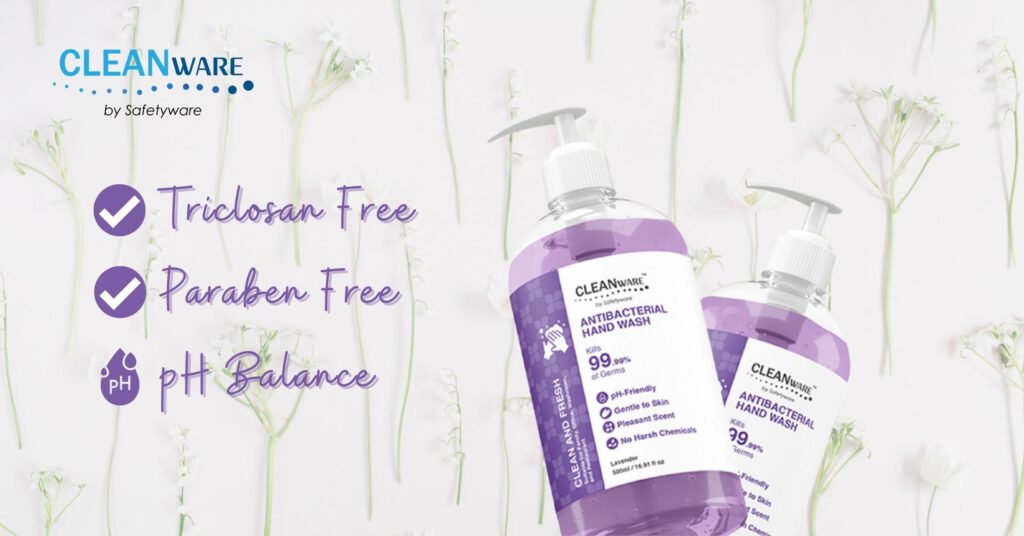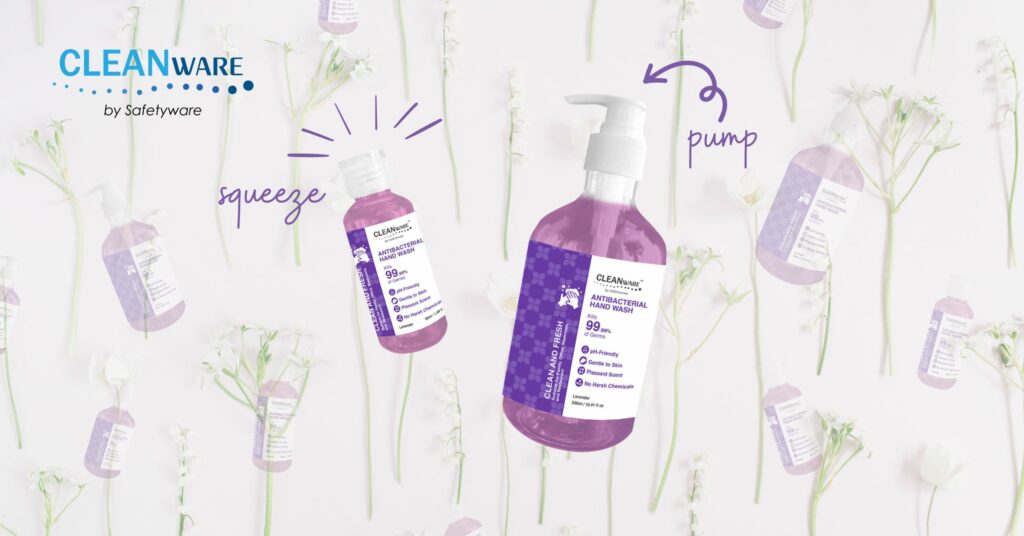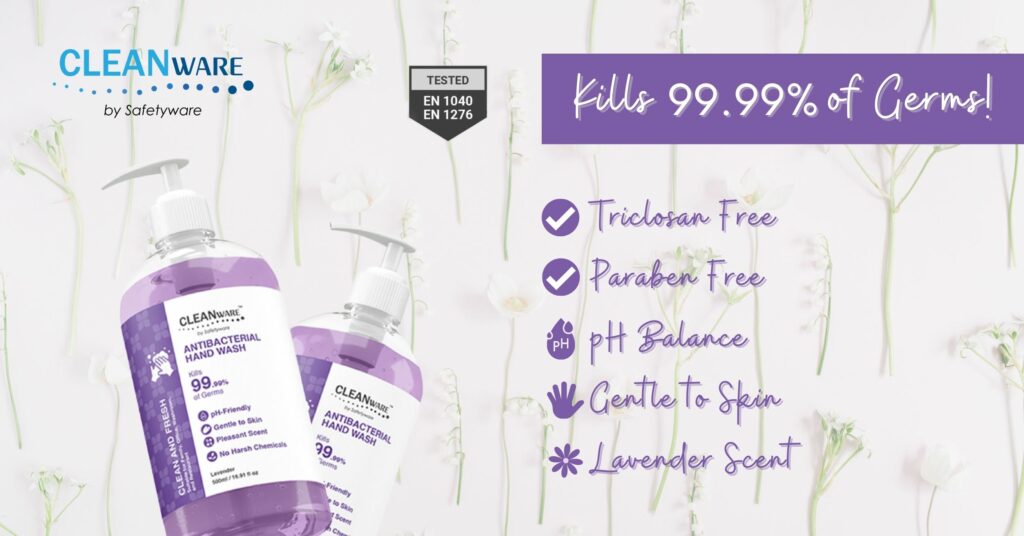Hand washing has always been a practice to remove dirt and germs from our hands and had been taken very seriously since the outbreak. The 20-second rule act as a point of reference to make sure all areas like the fingernails, the backs of the hands, and between the fingers, are not missed when washing hands.
While committing to the golden rule, it is also important to look into several things in a handwash to ensure that it is effective in cleaning your hands and keeping them healthy.

First, look into the active ingredients to see if they are free from any harsh chemicals. The commonly found banned ingredients include:
- Parabens: Preservatives that have been linked to hormone disruption and potential cancer risks
- Triclosan: A chemical widely used as an antiseptic, preservative, and disinfectant in healthcare but is seen to cause issues like skin irritation to hormone disruption, interference with muscle function, and contribution to antibacterial resistance.
- Triclocarban: Another antibacterial agent that has been linked to hormone disruption and environmental harm.
- Phthalates: Chemicals used to soften plastics that have been linked to reproductive harm and developmental issues.
- Formaldehyde: A chemical used as a preservative that has been linked to cancer and respiratory issues.
- Methylisothiazolinone: A preservative that has been linked to skin irritation and allergic reactions.
It is important to read the labels carefully when selecting handwash products and avoid those that contain these harmful chemicals. Instead, opt for handwash products that are made with natural or organic ingredients and are free from harsh chemicals that can harm your health or the environment, for example Cleanware’s anti-bacterial handwash. You can be worry-free as the handwash is free from paraben and triclosan.

Next is to look for products with moisturizing contents like aloe vera or glycerin, which can help to keep your hands soft and smooth like Cleanware’s anti-bacterial hand wash. To maintain the moisture on your hands, ensure the handwash is pH-balanced to avoid disruption of the natural balance of oils and bacteria as well as to prevent skin irritation, dryness, or other skin problems.
If a handwash is too alkaline (pH above 7), it can strip away the natural oils on your skin and disrupt the natural balance of bacteria, leaving your skin more vulnerable to infection. On the other hand, if a handwash is too acidic (pH below 4), it can cause skin irritation, dryness, or other skin problems.
Handwash is usually placed at a location near the source of water like the sink for easy wash and is commonly used by a person with dirt on their hands or in demand to clean up. Therefore, choosing a handwash that comes in convenient packaging like the pump bottle or squeeze tube is essential for easy dispensing and reducing any mess.

Lastly, having handwash brands that have a good reputation for quality and safety is as important to make sure products are working effectively, and are safe to use. For instance, Cleanware’s antibacterial hand wash gives you the confidence to use it as the products are manufactured under stringent quality control with ISO 9001, GMP certified and NPRA approved.

